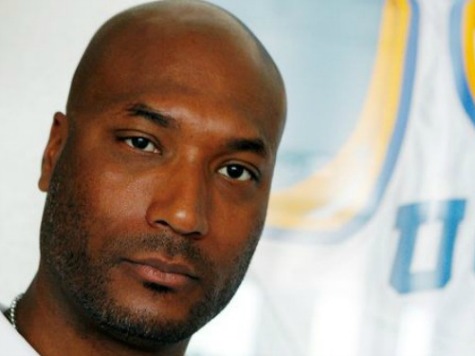U.S. District Judge Claudia Wilken ruled in favor of twenty former athletes, including UCLA basketball star Ed O’Bannon, suing the NCAA for preventing players from receiving revenues for the use of their names, likenesses, and images.
Wilken found “that the challenged NCAA rules unreasonably restrain trade in the market for certain educational and athletic opportunities offered by NCAA Division I schools.”
In essence, the decision ruled that players can be compensated if the NCAA or a league or a school uses player names, likenesses, or images for television, video games, or other money-making ventures. Wilken picked the figure $5,000 as an annual threshold for athlete pay at top schools. One means of paying the players while maintaining their amateur status endorsed by the judge would involve holding money in trust until the player leaves school.
“The Court therefore concludes that a narrowly tailored trust payment system–which would allow schools to offer their FBS football and Division I basketball recruits a limited and equal share of the licensing revenue generated from the use of their names, images, and likenesses–constitutes a less restrictive means of achieving the NCAA’s stated procompetitive goals,” Wilken ruled.
The court sided with the NCAA in its restriction of players earning money through endorsements. Whereas Wilken agreed with the general argument that players should benefit as a result of the NCAA or its members from using their images, likenesses, or names, she found that players shouldn’t be allowed to benefit from agreements allowing third parties to use their names, likenesses, or images. Like the NCAA, the court called such arrangements “commercial exploitation” and claimed that the governing body has a legitimate role to play to “protect” athletes beset by sponsors wanting to give them money.
The court ordered the NCAA to pay costs to the plaintiff’s attorneys atop any payments made to future players. Former athletes will not receive any financial settlement as a result of this case. The 108-year-old overseer of collegiate athletics vows to appeal the judgment.
The decision hinged on anti-trust law passed just a few years before the formation of the NCAA in the wake of the deadly 1905 football season. Wilken decreed that “because Plaintiffs’ college education market is essentially a mirror image of the market for recruits’ athletic services and licensing rights, the Court finds that the NCAA exercises market power, fixes prices, and restrains competition in both markets.”

COMMENTS
Please let us know if you're having issues with commenting.